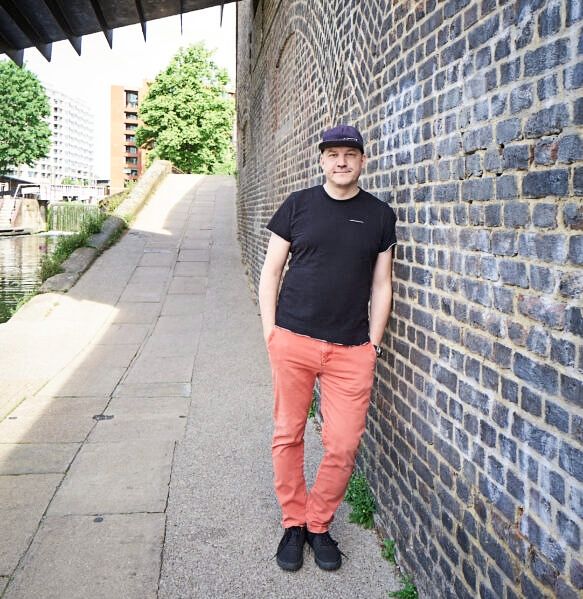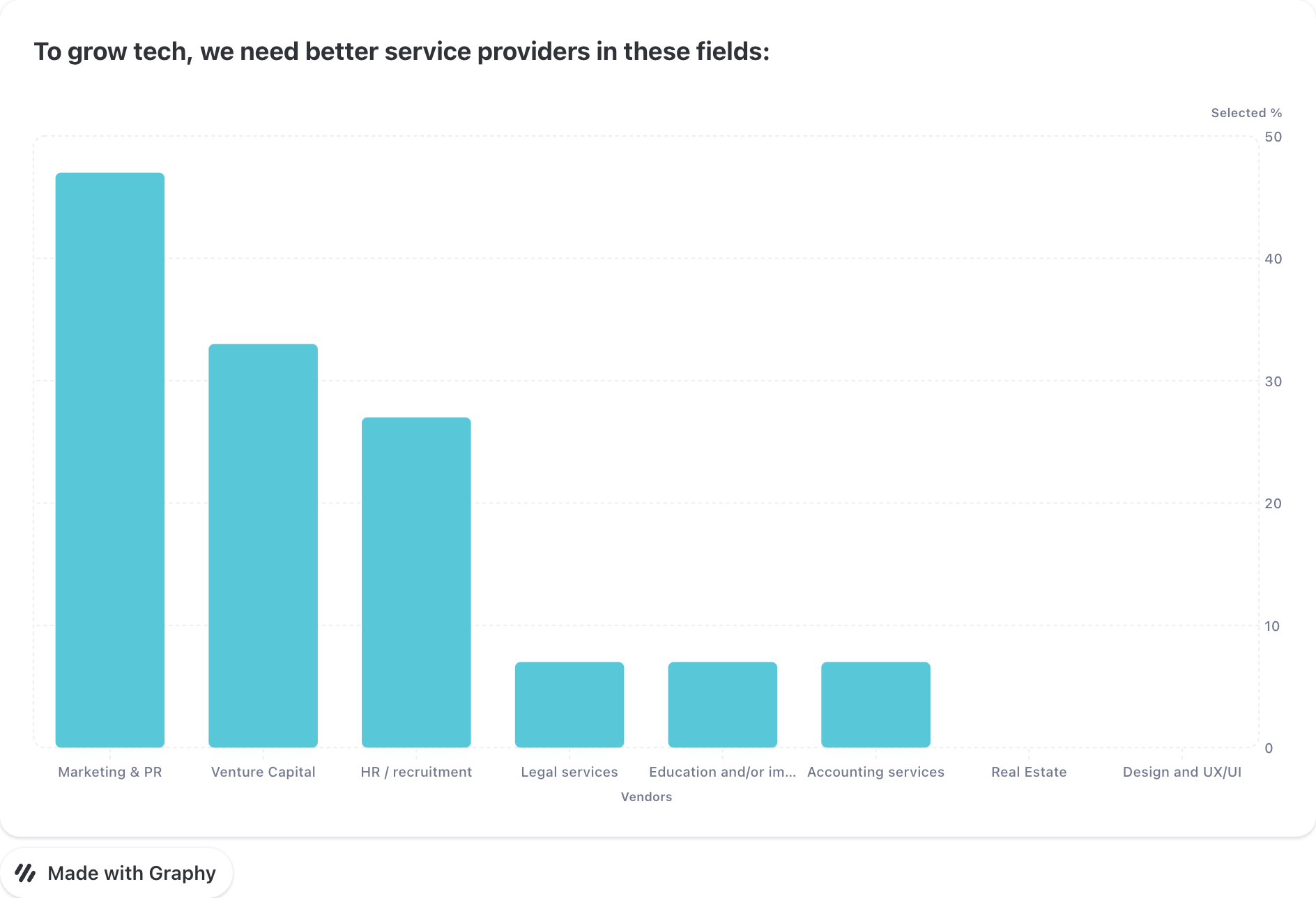Plural, society

work in progress
- Life Sciences. Novo Nordisk took the lead as the most valuable European company, driven by diabetes and obesity drugs. Roughly 10% of Denmark's economy, here is an interesting pod with the CEO. On a (almost) similar track, Atrandi Biosciences went from EUR 100k revenue in 2020 to almost EUR 2m in 2022 - fun podcast with Juozas Nainys. Blackford partners with Ligence to allow clinicians to analyse transthoracic echocardiography while using AI. In a recent radiology study, oxipit AI delivered 26.4% ROI with standard workflow, and 180% when pivoted to the auto-batch mode.
- People. Evelina became the new CEO of Robotikos akademija. Tomas Peluritis returns to Wix. Ugne is now HR Business Partner at Oxylabs.
- Products. Erikas and Donatas built a Shopify widget two years ago - and reminds us that this ecosystem is huge already. Salesforge is coming onto Product Hunt. NordVPN introduces Nord Labs. FT's deputy opinion editor is "Vinted addict". AISPECO's autonomous data collection platform is something to keep an eye on.

- Design. Argyle has been masterful in designing their brand and online presence, led by Siarhei; now he is back to running a studio. Ignas and Lina Survila built these cool experimental handbags – under THE JOY OF | brand.
- KamadoSpace went down with big conflict, should make an engaging newsletter thread if you enjoy reading court proceedings. Hardly should be considered as a tech startup, and financing / operations story just confirms there is not much to learn for technology founders.
- Events. All events - via Fiestos. One event - Startup Fair next week (speakers)
- Angels. With 25 deals in the last 12 months, LitBAN is among most active angel networks in Europe. But why do angels invest, after all? There is return component, there is learning, there is probably networking, too. Also, perhaps braging rights?
Alex Danco proposes another model: people do angel investing, despite low risk-adjusted returns, specifically for bragging rights. Tech is an industry where, at least in recent years, following a standard track and working at whichever company is the high bidder for your time can produce results that the rest of the country would characterize as "wealthy." So what's a poor Palo Alto millionaire to do when everyone else they know is also a millionaire? If they can say they were one of the first checks into Databricks, it actually sets them apart even if it hasn't affected their liquid net worth just yet.
rounds and capital
- Siena Secondary Fund plans to hold the first close of its new fund in late 2023 or early 2024 - targets to raise €30M- €50M.
- Geek Ventures targets immigrant founders with its first fund, $23 m. They have earlier invested in Filmustage, with some of the team in Vilnius. Be reminded it's not too smart to send a deck they day the fund gets announced.
- VC Workflows - how funds deploy Airtable, Affinity and other tools (increasingly ChatGPT) to source and manage dealflow.
three questions
Sten Tamkivi, Partner, Plural and Partner, Taavet+Sten

When considering the future achievements of a tech ecosystem (any city) 10 years from now, what specific data would you deem necessary to make a good prediction?
First you’ve got to have the basics right: simple, smooth (and digital!) ease of doing business. Appealing talent pool: both from local education, but also for frictionless attraction of the best in the world regardless of their passport. Clean and safe environment and so fourth. Schools and doctors empathetic to international visitors. Direct flights or trains to places that matter.
Sounds painfully simple, but only a few hubs in Europe hit a good balance still. And for most creative and ambitious businesses you still want cultural spikiness, not an anonymous business hub next to an airport. :)
And more specifically for startup scenes: you need local role models. People not that different from yourself that managed to create something from nothing: build complex products, sell to global markets, raise money, attract talent — without having to leave your city. That has practical spillovers, but also boosts confidence overall.
It appears that you have become more engaged in Estonian politics and civil society. Do you perceive politics as the primary risk to the entrepreneurial success that the Baltics have attained?
A lot of European and overall Western politics feels shifted away from past simple left/right oppositions on, say, economic policy arguing about a certain tax rate or whatnot. Instead, we get more abstract, yet more passionate values based conflicts on dimensions like open/closed or democratic/autocratic.
I do believe a successful tech hubs bloom in a more open, interconnected world that respects individual freedoms and multitude of voices at the table. After all, every single startup story starts by a creative individual daring to think different, venture away from the known, leaving comfortable personal safety behind to create something 10X better than status quo. A society that doesn’t leave space for this will not create new innovations for the world.
Freedoms are fragile and can never be taken for granted, as us here in the Baltics know better from practical experience than, say, fellow advocates of freedoms such as the Americans or Brits. Hence it makes sense for us all to keep an eye on developments in our own countries that risk steering us away from liberal democratic freedoms — and take a stand and get involved if necessary.
I’ve also noticed and pushed for an important cultural shift in the more recent generations of entrepreneurs with global tech background in Estonia: in the past, a business people usually got involved in politics when they needed something (a government contract, some permit, what not). Today, I see broader civic engagement in Estonia much more focused on pushing for broader public goods: open society, better education, freedom of movement, flat competitive playing field, digital innovations — not trying to get privileged advantages for one person or one company.
What is your take on the evolution of the startup ecosystem in Lithuania? What would you highlight its key advantages and potential risks going forward?
Besides a few long-time Lithuanian friends (hey, Tadas!), my involvement in the country’s tech scene has been quite arms length. Some major shifts I noticed from afar were Bank of Lituania’s visible embrace of fintech and crypto on most strategic political levels. And also, at some point, a push to attract backoffices and development teams of large international brands.
The last strategy is a tricky road to walk for recently emerging economies, because it can lock up swaths of talent from entrepreneurial ventures to more salaried jobs that accumulate equity profits elsewhere. But I’m certain that in the footsteps of first Lithuanian-born breakthroughs like Vinted or Nord Security or KiloHealth, we will see the startup ecosystem only accelerating. Every unicorn will spill out hundreds of inspired people with the networks, experience and capital for their next, even more ambitious undertaking.
founder's guide
- Understand stock option taxation and how countries compare (hint: Baltics stand out) - from the Salto X team.
- The Engineering executive’s role in hiring
- Just another Lenny's hit - guide for identifying your ICP (ideal customer profile), based on interviews with 20+ of today's top B2B startups.
- Are developers productive? There is Scrum, there is a new methodology from McKinsey... or run away from both.
Still WIP and for premium TP members - how to find and validate startup ideas

further insights
- Research: cynical people are thought of as smarter... but in reality, cynics test lower on cognitive & competency tests.
- Messages in the present tense are more persuasive
- Tattoos reached a turning point at work
2018 paper revealed in the US, the inked were just as likely to be employed, and to earn as much as the uninked. Indeed, men with tattoos were 7 per cent more likely to be employed than men without them.
ecosystem
- Tech boom in Estonia inflated house rental prices, FT reports. However, the most bizarre part is a "former Communist nation" reference - dear FT, please go read books.
- Which service providers should step up their game in LT? Here is what you answered.

roleplay
Eneba - Tax Manager
Aerones - Sales Director
Ikrautas - B2C Sales Rep
Trafi - Engineers and analysts
Bolt - Regional Head of People Partnering, North Europe
Pipedrive - Head of Quality
Printful - Sales Operations Director

three questions, previously
- Rytis Lauris, Co-founder and CEO, Omnisend
- Andreas Helbig, Partner, Atomico
- Domas Janickas, Co-founder at edON
- Milda Jasaite, Senior Director of Corporate Development, Vinted
- Darius Zakaitis, Founder & CEO, Tech Zity
- Roman Novacek, Partner, Presto Ventures
- Lina Zakarauskaite, Principal, Stride.VC
- Justinas Pasys, Managing Director, LitBAN
- Magnus Hambleton, Investor, byFounders
- Povilas Poderskis, Development Director, Darnu Group, ex-COO Nord Security
- Gytenis Galkis, Venture Partner, Superhero Capital
- Daniel Kratkovski and Dominykas Milašius, co-founders, Delta Biosciences
- Kasparas Aleknavicius - Co-Founder and CPO, Loctax
- Andrius Milinavičius, General Partner, Baltic Sandbox Ventures
- Laura Korsakova, Founder and CEO, Psylink
- Paulius Uziela, Investment Manager, Coinvest Capital

Member discussion